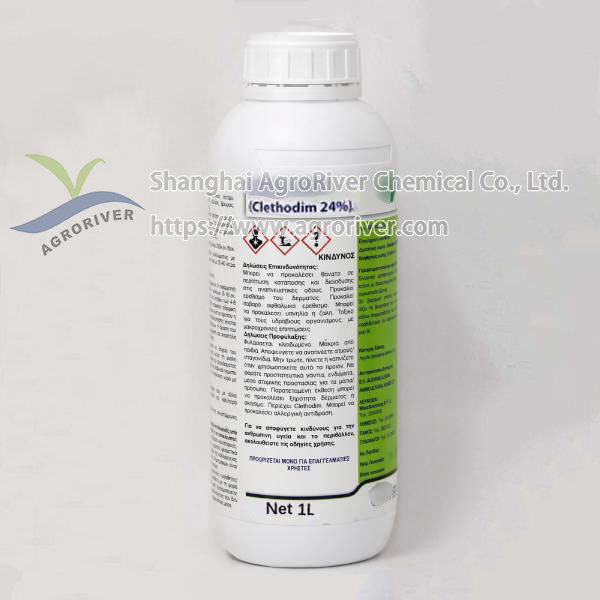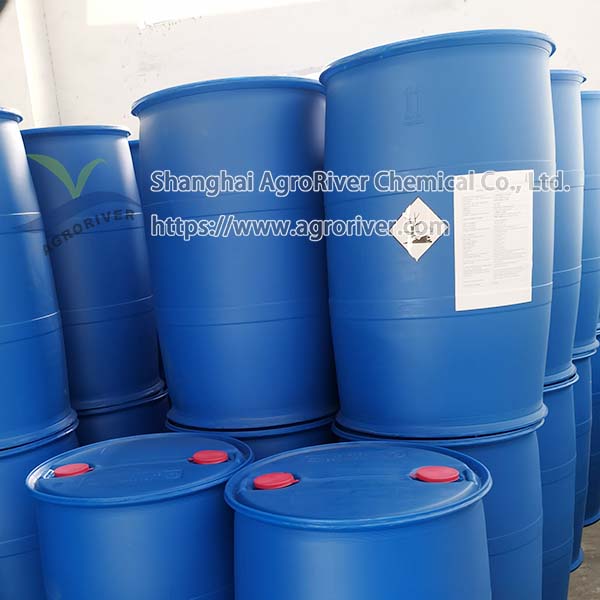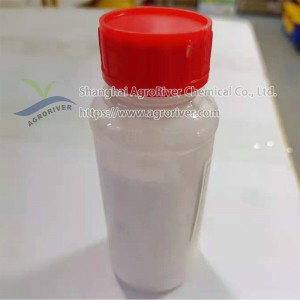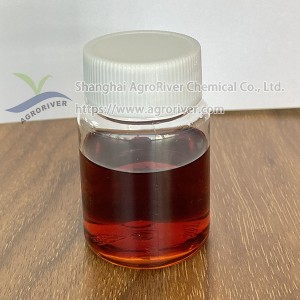Clethodim 24 EC Post-emergence herbicide
Products Description
Basic Information
Common Name: Clethodim(BSI, ANSI, draft E-ISO)
CAS No.: 99129-21-2
Synonyms: 2-[1-[[[(2E)-3-Chloro-2-propen-1-yl]oxy]iMino]propyl]-5-[2-(ethylthio)propyl]-3-hydroxy-2-cyclohexen-1-one;Ogive;re45601;ethodim;PRISM(R);RH 45601;SELECT(R);CLETHODIM;Centurion;Volunteer
Molecular Formula: C17H26ClNO3S
Agrochemical Type: Herbicide, cyclohexanedione
Mode of Action: It is a selective, systemic post-emergence herbicide which can be rapidly absorbed by plant leaves and conducted to roots and growing points to inhibit the biosynthesis of plant branched-chain fatty acids. The target weeds then grow slowly and lose competitiveness with seedling tissue early yellowing and followed by the remaining leaves wilting. Finally they will die.
Formulation: Clethodim 240g/L, 120g/L EC
Specification:
|
ITEMS |
STANDARDS |
|
Product name |
Clethodim 24% EC |
|
Appearance |
Brown liquid |
|
Content |
≥240g/L |
|
pH |
4.0~7.0 |
|
Water, % |
≤ 0.4% |
|
Emulsion stability (as 0.5% aqueous solution) |
Qualified |
|
Stability at 0℃ |
The volume of solid and/or liquid which separates shall not be more than 0.3 ml |
Packing
200L drum, 20L drum, 10L drum, 5L drum, 1L bottle or according to client's requirement.




Application
Applicable to annual and perennial grass weeds and many Field maize cereals with broad-leaf.
(1) annual species (84-140 g ai / hm2): Kusamiligus ostreatus, wild oats, wool millet, brachiopod, mangrove, black brome, ryegrass, gall grass, French foxtail, hemostatic horse, Golden Foxtail, Crabgrass, Setaria viridis, Echinochloa crus-galli, Dichromatic Sorghum, Barnyardgrass, Wheat, Lemna, Corn; Barley;
(2) Arabian sorghum of perennial species (84-140 g ai / hm2);
(3) Perennial species (140 ~ 280g ai / hm2) bermudagrass, creeping wild wheat.
It’s not or slightly active against broad-leaf weeds or Carex. The crops of grass family such as barley, corn, oats, rice, sorghum and wheat are all susceptible to it. Therefore, the autogenesis plants in the field where crops of non-grass family can be controlled with it.








